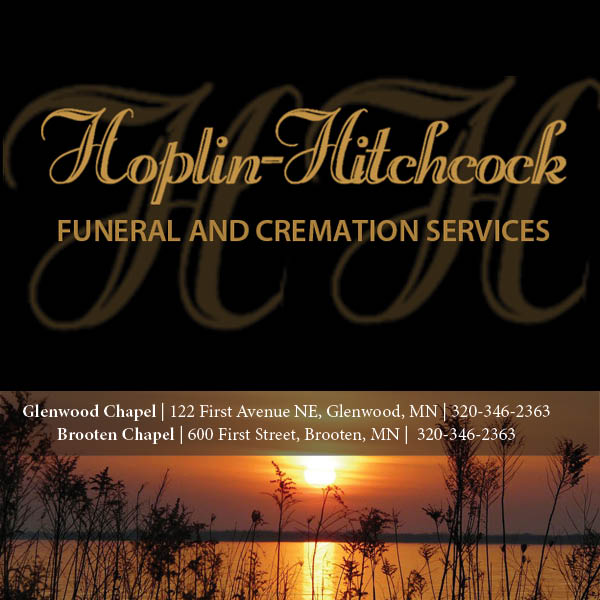A Last Fling before joining the army
News | Published on December 12, 2022 at 2:41pm CST
Editor’s Note: The following is an historic story of the Dougherty family, written by WWII veteran Dan Dougherty. It mentions his father and three of his brothers who grew up in Glenwood in the early 1900s. “As I recall,” he said in an email about his story, “the Glenwood American Legion Post was co-named for uncle Francis.” He said his uncle Ralph went down on the Arizona at Pearl Harbor whose anniversary was observed December 7. The art songs of uncle Celius are still regularly sung at concerts. Also mentioned is a visit with Senator Henrik Shipstead who was a dentist from Glenwood. He served four terms in the U. S. Senate. Dan P. Dougherty is now 97 years old.
By Dan Dougherty
I grew up in Austin, Minnesota, a meatpacking town, home of what is now Hormel Foods. It was World War II in the spring of 1943 and I was a high school senior. Two of my classmates had joined the Navy V-12 program, but I couldn’t qualify with my eyesight so, with the goal of getting into the Army’s college program, I passed the A-12 test and joined the Inactive Reserve Corps.
My parents had no illusions about the realities of war. Dad’s brother Francis graduated from West Point in 1917 and was killed in France the next year commanding a battalion of the Third Division. His family’s joy when World War I ended was shattered when notice of his death arrived a few days after the Armistice. His brother Ralph joined the Navy in WWI and made it a career. The only time I remember meeting him, he described for me how he fired the guns on the battleship Arizona! On that tragic Sunday, Dad’s face turned ashen white when the radio reported the Arizona had been hit at Pearl Harbor. Fire Controlman First Class Ralph M. Dougherty went down with the ship. And now, in the middle of an uncertain world-wide conflict, my parents’ second son would soon go off to war.
Dad worked for Hormel and, at the time, had business in New York City and Washington, D.C. He said to me, “Why don’t you come along and we’ll see some shows.” It was my spring vacation so no school would be missed.
Hormel’s ad agency was headquartered in NYC and could get you tickets to anything, and the few days we were there we saw three shows: The musical Oklahoma, which had just opened to rave reviews; the musical Annie Get Your Gun starring Ethel Merman; and the hit play Life with Father.
Oklahoma propelled Celeste Holm to stardom with her portrayal of Ado Annie. Her mother and my Dad were cousins so after the show we went backstage and she invited us to dine with her the next night at Sardi’s Restaurant. Also invited were Dad’s brother Celius Dougherty and his duo-piano partner Vincenz Ruzicka, who lived in NYC.
I’ll never forget that night. We all arrived early and Sardi’s maître d’ ignored us. Later, “Oh, you’re with Miss Holm! Right this way!” During the meal, I sat there with my mouth open listening to Celeste Holm talk about Celeste Holm!
Our time in D.C. included a visit with U.S. Senator Henrik Shipstead, who was a dentist from Dad’s hometown of Glenwood, Minnesota. Now, Glenwood’s not just any small town. Dad affectionately remembered it as one thousand Norwegians and the Dougherty family. It sits on beautiful Lake Minnewaska, but Garrison Keillor says Glenwood’s as close as you can get to Lake Wobegon!
Shipstead was one of the famous thirteen isolationist senators who, prior to WWII, had steadfastly opposed President Roosevelt’s foreign policy. Dad’s family felt their West Point son Francis had died in an unnecessary war, which was a common sentiment in the Midwest. So, my folks had been staunch supporters of Shipstead, the America First Committee, and its spokesman, Charles Lindbergh. My parents had known Lindbergh’s sister, Eva, as a fellow student at Carleton College where they graduated in 1913 and I remember when she visited us in Austin in support of my mother organizing “Women for Peace.” I was about fifteen and eavesdropped on the conversation. I never forgot Mom asking “And, how’s Lindy?” That’s what we all called Minnesota’s famous native son. That was about 1940. The peace ended December 7, 1941.
Our last stop that week was the Naval Academy at Annapolis where we had lunch with my brother, Midshipman Francis S. Dougherty, who was named for Uncle Francis. In the dining room, we watched while Fran, a plebe, ate a “square meal” with food coming to his mouth at right angles. He had classes all day so we couldn’t spend much time with him, but we did see his quarters and meet his roommates. Their three-year class graduated in 1945.
It had been a wowser week for this boy from the sticks, but I was soon back in the real world. I turned eighteen May 30th, graduated from high school June 6th, received my notice June 15th, and was inducted into the Army June 23rd. They didn’t horse around in those days.
After basic training, I was assigned to the Army Specialized Training Program (ASTP) at St. Louis University studying engineering. By early 1944, however, the Army had a priority for infantry replacements, not engineers. When ASTP folded in March, thousands of us, all privates, were sent – kicking and screaming – to depleted combat units. Our group in St. Louis went to the 44th Division. My military career had begun a new chapter: I was now headed for the European Theater as a buck private in the infantry!
Postscript: In August 1945, after the war had ended in Europe, I saw Celeste Holm in a USO show in Paris. I went backstage and sent word there was a relative to see her. She took one look at me and said, “You’re a Dougherty!” Pretty good considering we’d met only one time in a busy restaurant two years earlier. From Paris, she flew to Oslo to be honored by the royal family as an outstanding Norwegian-American. She was a friend of my sister Mary, who knew her as a lovely person. She died in 2012 at age 95. Celeste Holm was her given name.




